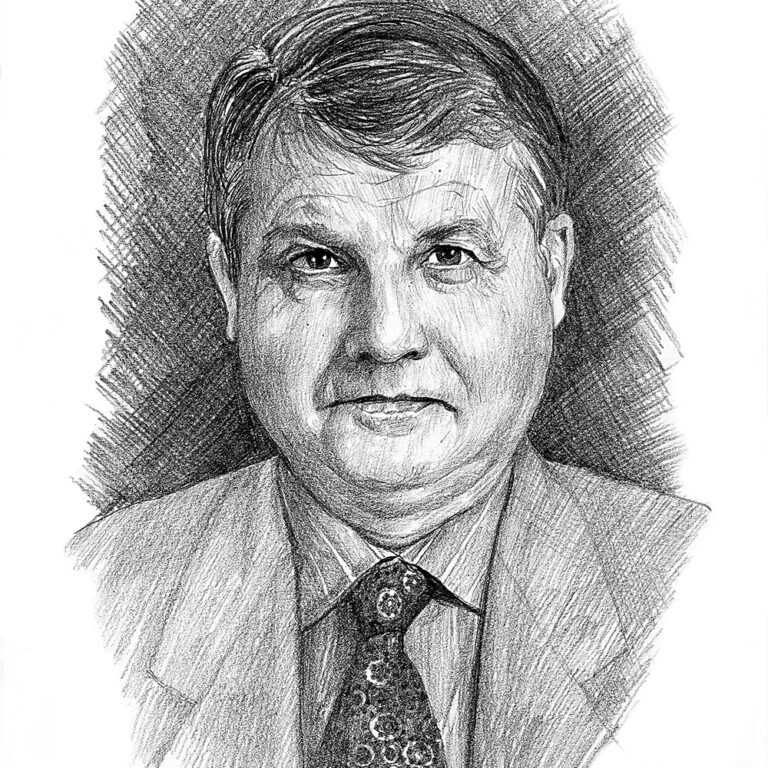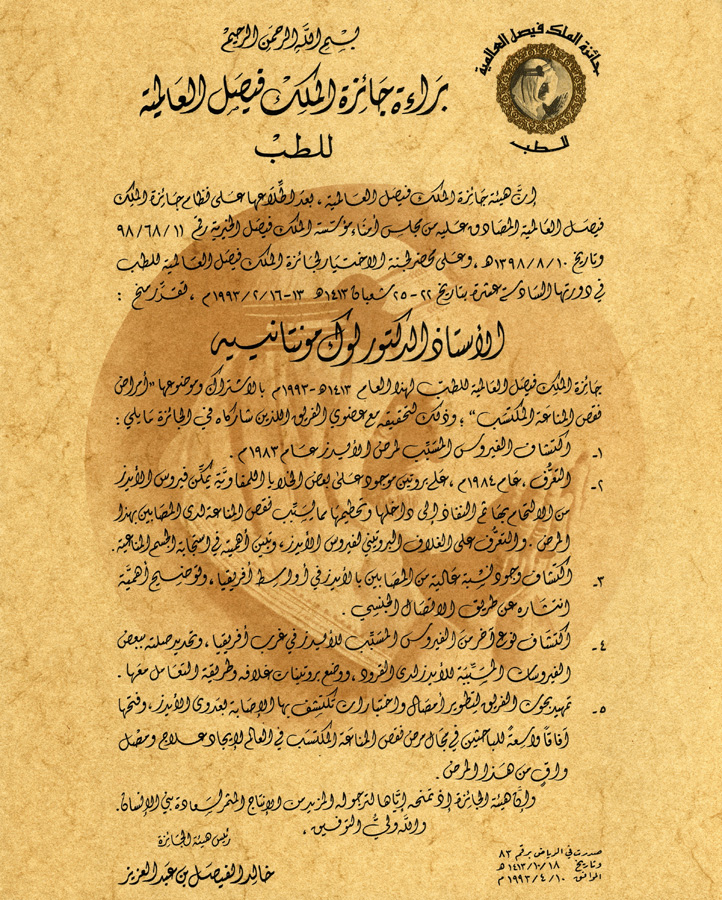

Professor Luc Montagnier
King Faisal Prize in Medicine 1993 Laureate
Topic: "Acquired Immunodeficiency Diseases"
The future of AIDS epidemic is really dependent on the effort we are making today

Luc Montagnier obtained his graduate diploma in natural sciences from Poitiers University in 1953 and a B.Sc. from the universities of Poitiers and Paris in 1955, respectively, and doctorate in Medicine from the University of Paris in 1960. He spent three and a half years in the United Kingdom training at the Medical Research Council at Carshalton. Between 1963 and 1964, he conducted research at the Institute of Virology in Glasgow, Scotland. From 1965 to 1972, Montagnier became laboratory director of the Institut de Radium (Institut Curie) at Orsay. Thereafter, he became the Research Director of the Center National de la Recherche Scientifique (CNRS) and Professor of Virology at the Pasteur Institute in 1985.
Prior to the onset of the AIDS epidemic, Montagnier made several other landmark discoveries on the nature of viruses, and how they can alter the genetic information of host organisms; these findings contributed to the advancement of cancer research. His studies of interferon (a natural protein produced by the body to fight viruses) have also opened avenues for medical cures for viral diseases. However, Montagnier and his group are best known for their 1983 discovery of the human immunodeficiency virus (HIV), followed by the development of a test for detecting its presence in blood samples. Their discovery of the AIDS virus (then named Lymphadenopathy Associated Virus or LAV) in human T4 lymphocytes was met with a bitter dispute with Professor Robert Gallo of the Laboratory of Tumor Cell Biology at the National Cancer Institute, USA, who reported the identity of the virus in 1984 under the name Human T Lymphotropic Virus-III. Although the scientific community predominantly agreed that Montagnier and his group should be credited with the discovery, the dispute was resolved by determining that the viruses isolated by French and American scientists were of the same identity and origin, and therefore the two groups share the credit of discovering the AIDS virus. It was named Human Immunodeficiency Virus (HIV) type 1, to distinguish it from HIV type II which Montagnier and his co-workers discovered in West Africa in 1985. Montagnier and his team have since carried out seminal research on immunodeficiency viruses, such as their characterization, mechanism of action, diagnosis, and treatment. Their work was fundamental in the development of current AIDS medication.
Professor Montagnier received more than 20 other major awards and honors, including the Chevalier de la Légion d’Honneur in 1984, the Lasker Award in 1986, and the Gairdner Award in 1987.
This biography was written in the year the prize was awarded.
- He held several positions including:
- Gloria and Bernard Salk Chair Professor of Molecular and Cell Biology at Queen’s College in 1997.
- Professor Emeritus at Pasteur Institute in 2000.
- Emeritus Professor at Shanghai Jiaotong University in 2010.
- He received many awards and honors including:
- The Prince of Asturias Award in 2000.
- Induction into the National Inventors Hall of Fame in 2004.
- The Nobel Prize for Physiology or Medicine in 2008.
- Grand Officer of the Legion of Honor in 2009.
- Professor Luc Montagnier passed away in Paris on 8/2/2022.



